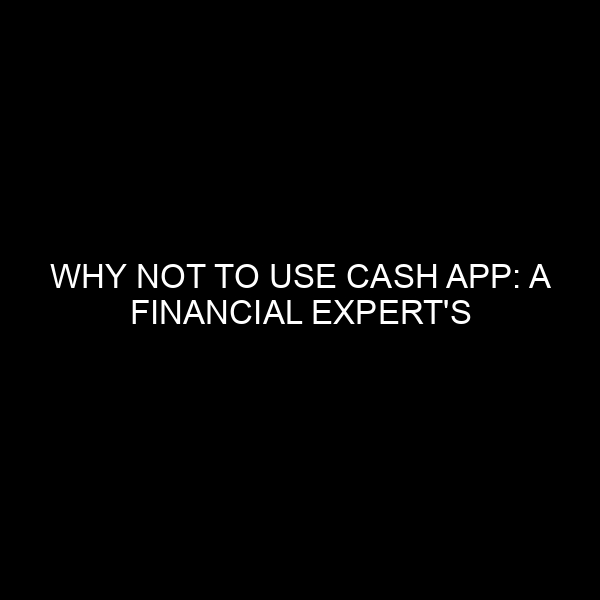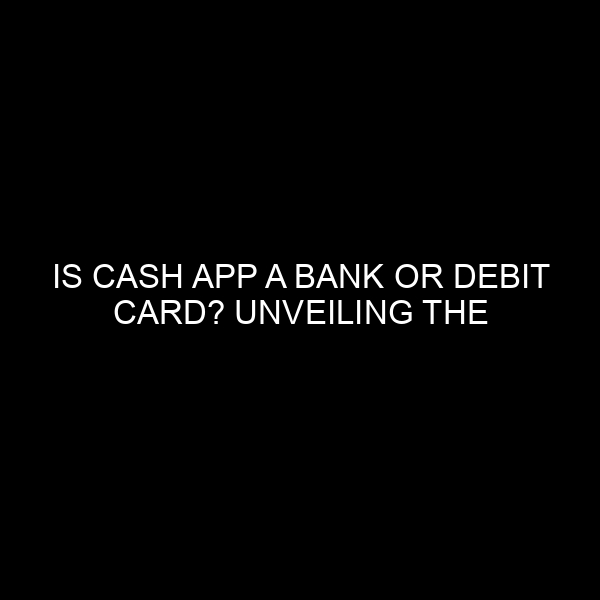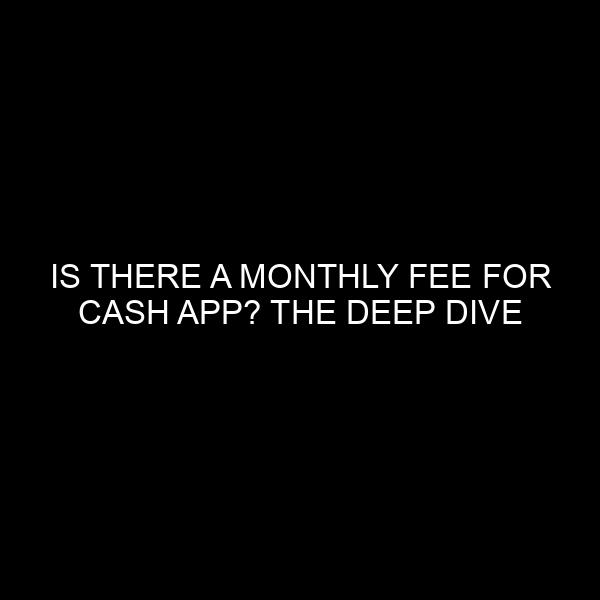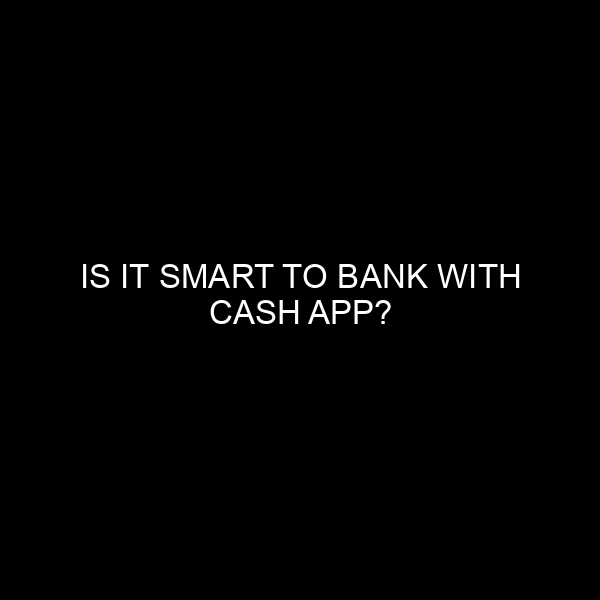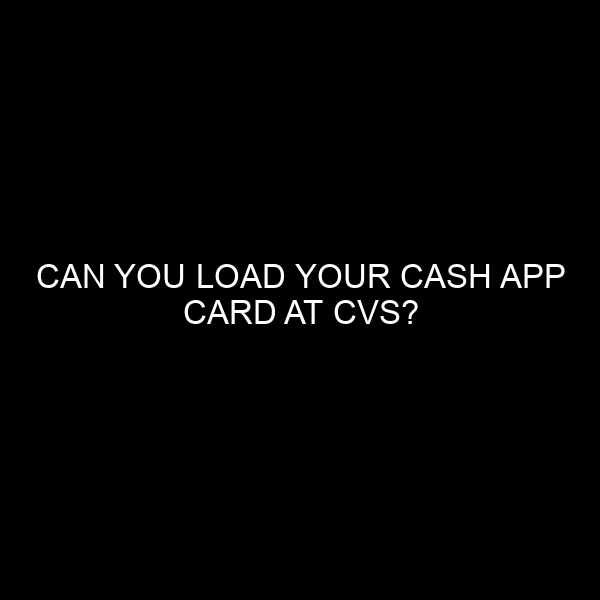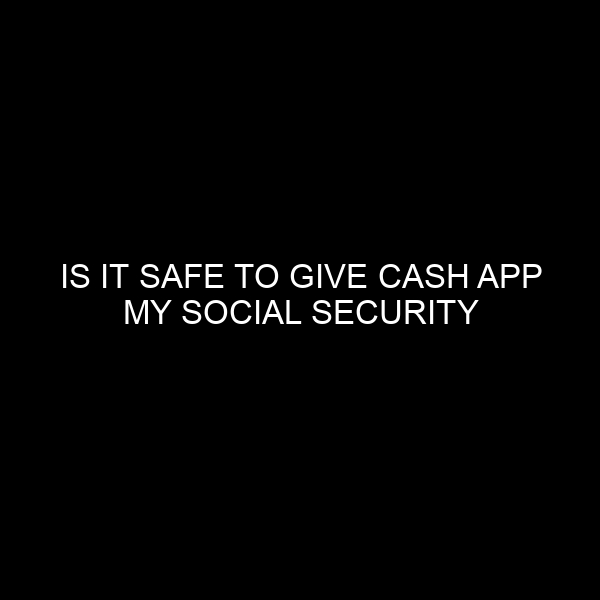Why Not to Use Cash App: A Financial Expert’s Perspective
In the digitized age, cashless transactions have gained immense popularity, enabling users to send and receive money seamlessly through their smartphones. Among the various digital payment platforms that have emerged, Cash App by Square is one that has garnered significant attention. Its user-friendly interface and unique features have attracted millions. However, before diving headfirst into any financial tool, it’s crucial to consider potential pitfalls. Drawing from my extensive background in the financial market and banking industry, this article sheds light on the reasons one might reconsider using Cash App as their primary financial platform.
1. Security Concerns
A. Past Incidents of Fraud
Over the years, numerous Cash App users have reported unauthorized transactions and hacks. Despite the platform incorporating security measures like PINs and touch IDs, there remain vulnerabilities. In 2020, the Better Business Bureau reported a surge in scams targeting Cash App users. Scammers employ various techniques, from impersonating customer support to sending fake requests for money.
B. Lack of Traditional Banking Protections
Unlike banks, which are mandated to follow stringent security protocols and provide FDIC insurance, Cash App, and platforms like it, do not offer the same level of protection. So, if your money disappears, there’s no guaranteed way to retrieve it.
2. Customer Service Limitations
Many users have expressed dissatisfaction with Cash App’s customer service. Issues range from delayed response times to challenges resolving disputes. Traditional banks usually offer multiple customer service channels, such as physical branches, phone support, and email. In contrast, Cash App mainly relies on in-app support and email, which might not always be effective for urgent issues.
3. Transaction Limitations
A. Sending and Receiving Caps
For unverified users, Cash App has weekly sending limits of $250 and receiving limits of $1,000. While you can increase these limits by verifying your identity, they might still be limiting for those conducting larger transactions.
B. International Limitations
Cash App only supports payments between users in the United States and the United Kingdom. If you frequently transact internationally, you’d need an alternative platform.
4. Lack of Comprehensive Financial Services
Traditional banks offer an array of services, from loans and credit facilities to investment options. Cash App, on the other hand, mainly focuses on peer-to-peer transfers. While it has diversified to include features like Cash App Investing, it lacks the comprehensive suite of financial products and services that established banks provide.
5. Reliability and System Outages
There have been instances where Cash App experienced outages, preventing users from accessing their money or conducting transactions. System reliability is paramount in financial transactions. The occasional glitches and outages might be a red flag for those seeking a dependable platform.
6. Fees Associated with Instant Withdrawals
While Cash App offers free standard withdrawals, which can take up to three business days, it charges a fee for instant transfers to bank accounts. Users who frequently require instant access to their funds might find these fees accumulating over time.
7. Over-reliance on Digital Platforms
While digital platforms offer convenience, over-reliance can be perilous. Technical glitches, forgotten passwords, or misplaced phones can temporarily lock you out. It’s always wise to diversify how you manage and access your funds.
Conclusion: Is Cash App Right for You?
Cash App certainly brings convenience to the table, but it’s essential to weigh the potential drawbacks against its benefits. For users only seeking a platform for occasional peer-to-peer transactions, Cash App might suffice. However, for those requiring robust financial services, traditional banks or more comprehensive digital platforms might be better suited.
Remember to exercise caution, keep informed about potential scams, and always be vigilant about your financial transactions. Your financial security should always be a priority.
